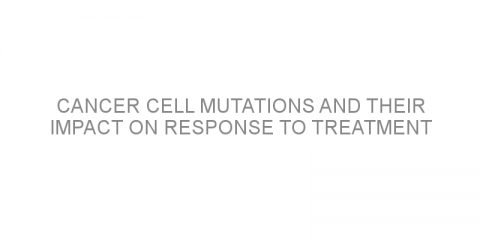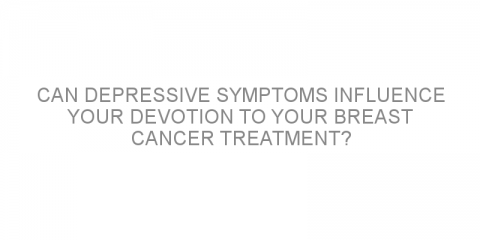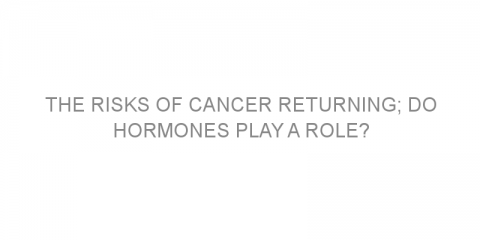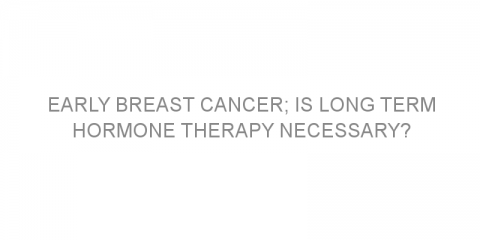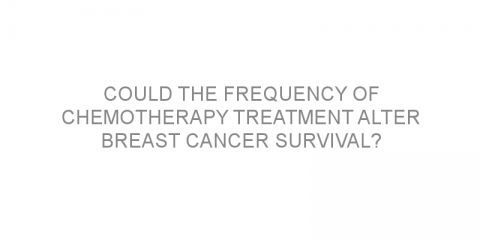In a nutshell The authors aimed to determine the significance of cancer cells mutations (a permanent change in the genetic core of the cell) and their impact on a patient’s eligibility for certain therapy drugs. Some background Tumor suppressor genes (such as BRCA-1) protect cells from becoming cancerous through mechanisms that repair damage...
Read MoreBreast cancer Posts on Medivizor
Can depressive symptoms influence your devotion to your breast cancer treatment?
In a nutshell The authors aimed to determine whether there was a link between depressive symptoms in women with breast cancer and their likelihood to adhere to or continue with their chosen treatment. Some background Depression or depressive symptoms affect approximately 6% of the world’s population. It is known that 20% of those with breast...
Read MoreTherapy before surgery: What are the benefits?
In a nutshell The authors aimed to determine the advantage of neo-adjuvant (treatment given before surgery) therapies in terms of eligibility for certain surgeries. Some background Neo-adjuvant chemotherapy (NAC) is often provided to patients prior to surgery in an attempt to first shrink the tumor. This type of treatment is known to increase the...
Read MorePatients Included In Research: Studying Cancer by Mutation Not Organ
We’ve gotten used to thinking about having cancer in your colon or lung or breast. We’ve systematized treatments and research of cancer by the organ that’s affected. And we’ve been fundraising that way too–pitting lung cancer against breast cancer against childhood cancers. But what if this view of cancer is totally...
Read MoreBreast cancer sub-types and the extent of surgery required
In a nutshell The authors aimed to evaluate whether there was a difference between the rates of local recurrence (the cancer returns to or near the site of the original tumor) in invasive lobular carcinoma and invasive ductal carcinoma. Some background Invasive lobular carcinoma is characterized as cancer that begins in the milk-producing lobules...
Read MoreThe effects of not receiving appropriate breast cancer treatment
In a nutshell The authors aimed to determine the recurrence (the cancer returns) rates in women with human epidermal growth factor receptor 2 positive (HER2+) breast cancer who do not receive anti-HER2+ therapy. Some background HER2+ breast cancer is a specific sub-type of breast cancer dependent on the HER2 protein for growth. It is often...
Read MoreCan a trastuzumab-combination chemotherapy treatment cause skin and nail infections?
In a nutshell The authors aimed to determine whether severe skin and nail infections observed in patients with breast cancer were due to a combination-chemotherapy treatment. Some background Trastuzumab (Herceptin) is a common drug used to treat patients with human epidermal growth factor 2 positive (HER2+) breast cancer. The HER2 protein can...
Read MoreRetargeting: Treatment for metastatic HER2+ breast cancer that has progressed following targeted treatment
In a nutshell The authors reviewed the benefits and safety of ado–trastuzumab emtansine (Kadcyla), a treatment for metastatic breast cancer (cancer that has spread to other areas of the body). Some background Human epidermal growth factor receptor 2 positive (HER2) breast cancer depends on HER2 for growth. Treatments that target the HER2...
Read MoreThe risks of cancer returning; do hormones play a role?
In a nutshell The authors aimed to determine the risks of cancer recurrence (the cancer returns) between the time of hormone or endocrine therapy and the 10 years following. Some background Endocrine therapy is used as treatment against particular cancers that may grow in response to hormones natural to our body. This includes hormone...
Read MoreTargeting chemotherapy and hormone therapy resistant breast cancer
In a nutshell The authors aimed to evaluate the effectiveness of lapatinib (Tyverb) as treatment for women with metastatic breast cancer (the tumor has spread to other organs) where previous treatment has proven ineffective. Some background Circulating tumor cells (CTC’s) are cells from a primary tumor that have migrated into the blood...
Read MoreEarly breast cancer; is long term hormone therapy necessary?
In a nutshell The authors aimed to assess the effectiveness of prolonged hormone therapy to treat women with early breast cancer. Some background Tamoxifen (Nolvadex) is a type of hormone therapy used to treat breast cancer. It attaches to the estrogen receptors (surface structures that respond to estrogen hormone) present on some cancer cells...
Read MoreCould the frequency of chemotherapy treatment alter breast cancer survival?
In a nutshell The authors aimed to determine both the effectiveness and toxicity of a type of chemotherapy treatment for breast cancer. Some background Adjuvant chemotherapy is a course of chemotherapy that patients often receive after their main treatment. Chemotherapy can reduce the risk of cancer recurrence (the cancer returns) and improve...
Read More
